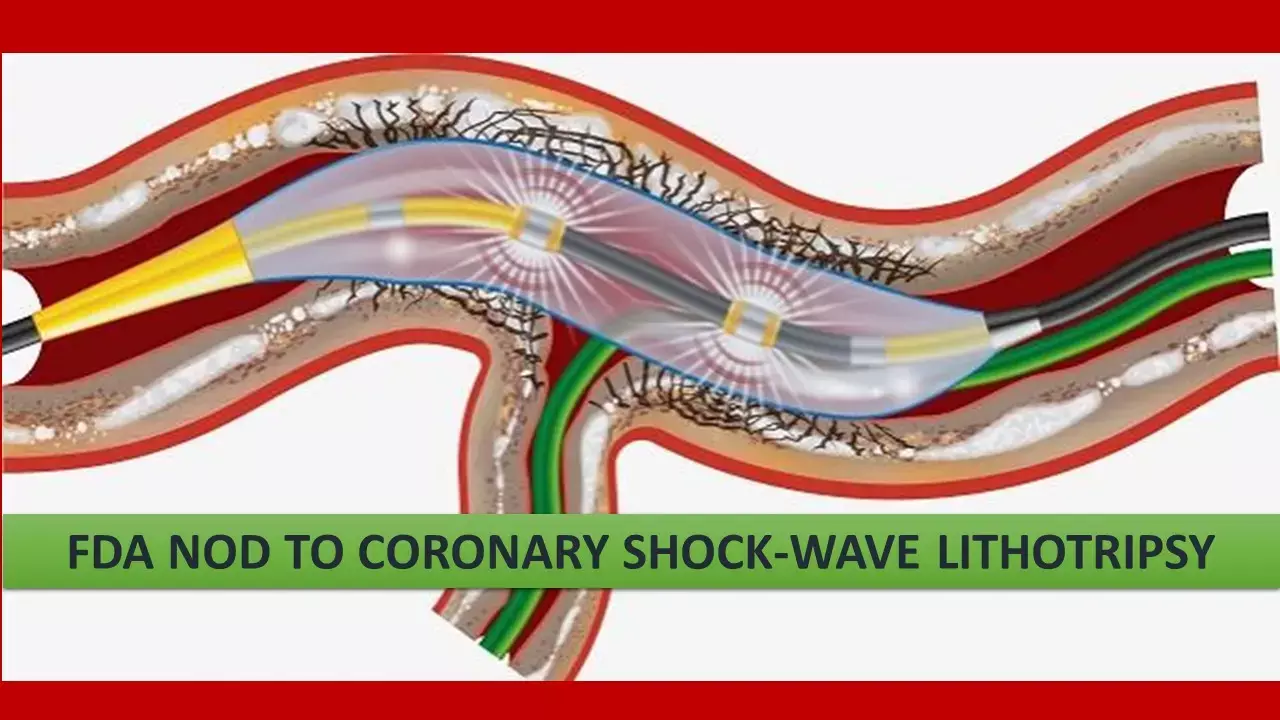- Home
- Medical news & Guidelines
- Anesthesiology
- Cardiology and CTVS
- Critical Care
- Dentistry
- Dermatology
- Diabetes and Endocrinology
- ENT
- Gastroenterology
- Medicine
- Nephrology
- Neurology
- Obstretics-Gynaecology
- Oncology
- Ophthalmology
- Orthopaedics
- Pediatrics-Neonatology
- Psychiatry
- Pulmonology
- Radiology
- Surgery
- Urology
- Laboratory Medicine
- Diet
- Nursing
- Paramedical
- Physiotherapy
- Health news
- Fact Check
- Bone Health Fact Check
- Brain Health Fact Check
- Cancer Related Fact Check
- Child Care Fact Check
- Dental and oral health fact check
- Diabetes and metabolic health fact check
- Diet and Nutrition Fact Check
- Eye and ENT Care Fact Check
- Fitness fact check
- Gut health fact check
- Heart health fact check
- Kidney health fact check
- Medical education fact check
- Men's health fact check
- Respiratory fact check
- Skin and hair care fact check
- Vaccine and Immunization fact check
- Women's health fact check
- AYUSH
- State News
- Andaman and Nicobar Islands
- Andhra Pradesh
- Arunachal Pradesh
- Assam
- Bihar
- Chandigarh
- Chattisgarh
- Dadra and Nagar Haveli
- Daman and Diu
- Delhi
- Goa
- Gujarat
- Haryana
- Himachal Pradesh
- Jammu & Kashmir
- Jharkhand
- Karnataka
- Kerala
- Ladakh
- Lakshadweep
- Madhya Pradesh
- Maharashtra
- Manipur
- Meghalaya
- Mizoram
- Nagaland
- Odisha
- Puducherry
- Punjab
- Rajasthan
- Sikkim
- Tamil Nadu
- Telangana
- Tripura
- Uttar Pradesh
- Uttrakhand
- West Bengal
- Medical Education
- Industry
Shock-wave lithotripsy gets FDA approval

Following last year's astonishing results from DISRUPT CAD III trial, the US Food and Drug Administration has now cleared the Shockwave intravascular lithotripsy (IVL) system for the treatment of severely calcified coronary artery plaques.
The device uses a balloon to deliver sonic pressure waves that can pass through soft arterial tissue to "preferentially disrupt" calcified plaque and optimize stent placement. It thus holds the potential to displace rotational and orbital atherectomy devices that have been the market standard for these lesions.
The Shockwave IVL System (Shockwave Medical) with the Shockwave Coronary IVL Catheter is indicated for "lithotripsy-enabled, low-pressure balloon dilatation of severely calcified, stenotic de novo coronary arteries when used prior to stenting," states the press release on the official handle of TCT.
Premarket approval was based in part on results from DISRUPT CAD III, the single-arm, pivotal trial released at the virtual TCT meeting in October 2020. As reported by TCTMD, the multinational trial enrolled 431 patients with severely calcified de novo coronary artery lesions amenable to Shockwave. The major findings of this investigation are as follows:
1) treatment with coronary IVL met the primary safety and effectiveness endpoints of the study;
2) coronary IVL prior to DES implantation was well tolerated with a low rate of major peri-procedural clinical and angiographic complications;
3) transient IVL-induced left ventricular capture occurred frequently, but was benign with no lasting sequelae in any patient; and
4) OCT demonstrated multiplane and longitudinal calcium fractures after IVL in 67.4% of lesions, with excellent stent expansion in those with and without calcium fractures identified by OCT despite the marked severity of the calcified lesions treated.
In the trial, stent expansion, even in areas of maximum calcification, was as much as 102%, which principal investigator Dean Kereiakes, MD (The Christ Hospital Heart and Vascular Center, Cincinnati, OH), called "kind of jaw-dropping" for these kinds of lesions. Suboptimal stent expansion is a known predictor of later stent thrombosis and restenosis.
Shockwave's peripheral lithotripsy system was cleared by the FDA in 2016 for use in severely calcified PAD, so users are already familiar with the system, Kereiakes told TCTMD today, adding that "anybody who's ever worked in the vascular space" will appreciate the simplicity of using a balloon in calcified vessels. Atherectomy devices, he pointed out, are subject to wire bias, potentially leading to eccentric ruts or troughs where the burr "rides the wire." By contrast, the balloon-based Shockwave acts more concentrically in the calcified space.
"I think there is a great deal of enthusiasm" for using IVL in the coronaries, Kereiakes said. "From my perspective, it's the safest, most-predictable and -effective way to modify calcium to optimize stent deployment. It really is. The results are pretty spectacular: abrupt closures, perforations, and no recoil were all zero in [DISRUPT] CAD III after IVL alone."
"We tried to create a performance goal for safety and a performance goal for efficacy that were directly taken from ORBIT II. That is the next best thing—not as good—but the next best thing to a head-on comparison," Kereiakes said.
The high cost (not yet listed in reimbursement by majority of insurance companies) and "single-time use" profile of the system may be prohibitive for widespread use especially in developing countries like India.
SOURCE: TCTMD updates: https://www.tctmd.com/news/fda-approves-shockwave-intravascular-lithotripsy-calcified-coronaries
MBBS, MD , DM Cardiology
Dr Abhimanyu Uppal completed his M. B. B. S and M. D. in internal medicine from the SMS Medical College in Jaipur. He got selected for D. M. Cardiology course in the prestigious G. B. Pant Institute, New Delhi in 2017. After completing his D. M. Degree he continues to work as Post DM senior resident in G. B. pant hospital. He is actively involved in various research activities of the department and has assisted and performed a multitude of cardiac procedures under the guidance of esteemed faculty of this Institute. He can be contacted at editorial@medicaldialogues.in.
Dr Kamal Kant Kohli-MBBS, DTCD- a chest specialist with more than 30 years of practice and a flair for writing clinical articles, Dr Kamal Kant Kohli joined Medical Dialogues as a Chief Editor of Medical News. Besides writing articles, as an editor, he proofreads and verifies all the medical content published on Medical Dialogues including those coming from journals, studies,medical conferences,guidelines etc. Email: drkohli@medicaldialogues.in. Contact no. 011-43720751


